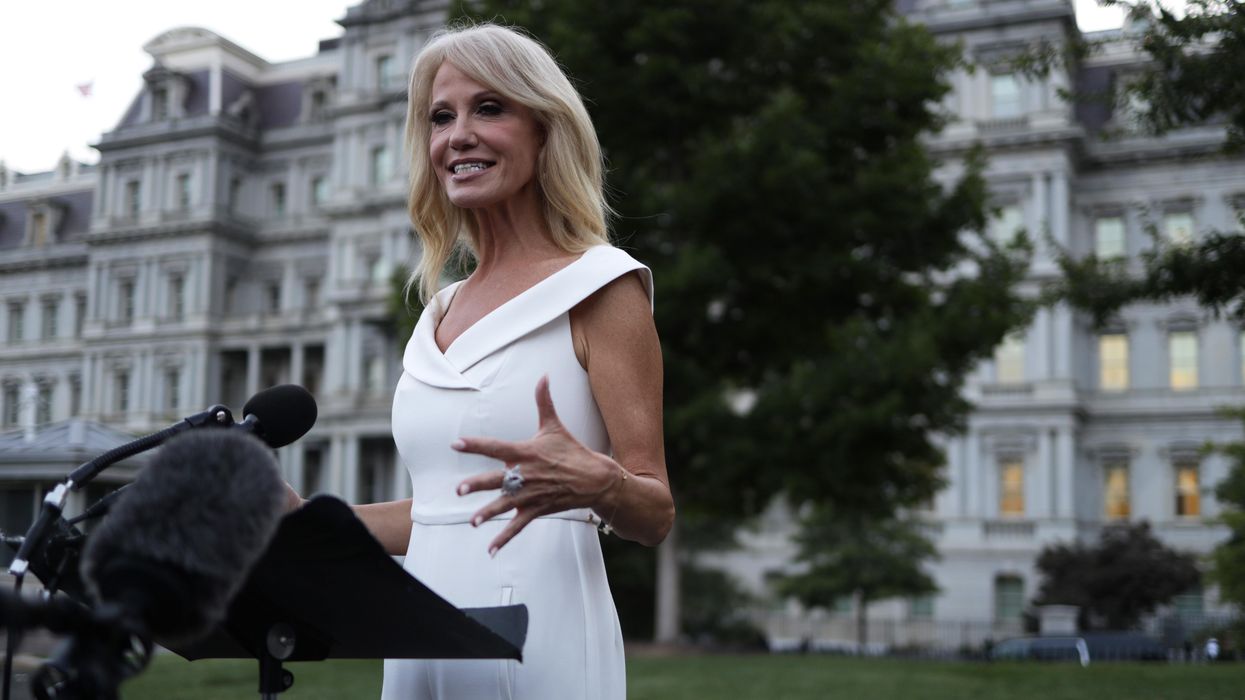Ahearn is policy director of Citizens for Responsibility and Ethics in Washington, or CREW, a nonpartisan group that works to expose ethical violations and corruption by federal officials and agencies.
This is part of a series advocating for parts of legislation soon to be proposed in the House, dubbed the Protecting Our Democracy Act, designed to improve democracy's checks and balances by curbing presidential power.
Throughout Donald Trump's four years as president, nearly every federal government ethics and anti-corruption law suffered immense public damage. But among his administration's flagrant and unrepentant disregard for such laws, the serial flouting of the Hatch Act may have been the most obvious — and among the most damaging.
The Hatch Act became law in 1939 with a simple purpose: to prevent federal employees from engaging in partisan politics while performing official government duties. Despite its low public profile, the Hatch Act codifies fundamental tenets of American democracy, ensuring "federal programs are administered in a nonpartisan fashion" and government officials do not abuse taxpayer funds to hold political power.
Our government should provide service to all people, regardless of their partisan or personal affiliation. Such a guarantee is the bedrock of a government by and for the people. Government employees of both parties have abided by the Hatch Act's principle of nonpartisan service for more than 80 years.
That tradition, and its guarantee of equal governmental service, ended within hours of the 2017 inauguration. For almost the entirety of his presidency, Trump political appointees engaged in a "persistent, notorious, and deliberate" attack on the Hatch Act, an institutional disregard that eroded "the principal foundation of our democratic system — the rule of law."
It is of critical and immediate importance that Congress address this issue before it further erodes public trust in our government. The Protecting Our Democracy Act is an important step in that direction.
It would patch some of the most problematic cracks in the Hatch Act exploited by the previous administration exploited.
The most important improvements would be strengthening the Office of Special Counsel, the agency in charge of enforcing Hatch Act compliance. The Trump administration vividly demonstrated how OSC's weaknesses created two tracks for executive branch employee compliance: Civil service and lower level appointees face standards adjudicated by the independent Merit Systems Protection Board, but higher-level employees appointed by the president are exempt and so may avoid consequences if the president chooses.
The bill would take significant steps to address this inequity between rank-and-file and politically connected appointees.
First, it would allow the OSC to fine senior political appointees $50,000 when the president fails to hold them accountable for violations. This addresses the loophole glaringly exposed, for example, when Trump refused to take any action to address senior adviser Kellyanne Conway's flagrant violations of the Hatch Act.
Second, it would increase transparency surrounding Hatch Act violations by senior political appointees. Not only did Trump repeatedly refuse to discipline political employees who violated the act, but he provided no rationale for his decisions. The bill would require presidents to provide a written statement to the OSC in response to that office finding a political appointee violated the act. At a minimum, this would make the president's choice to avoid disciplining political appointees politically toxic.
The bill also addresses a problematic loophole created by the OSC. It says the law requires an independent complaint about a potential violation before beginning an investigation. This interpretation limits any ability to proactively enforce compliance with the Hatch Act. The new legislation would end this problem by authorizing the OSC to start Hatch Act violation inquiries on its own.
While the bill is an important step in the right direction, more improvements are needed. For instance, the proposed $50,000 penalty would only be a deterrent for officials of normal financial means. It would mean little for somebody like former Secretary of Education Betsy DeVos, whose fortune is in the hundreds of millions of dollars. To bolster deterrence, Congress should include language in spending bills to prevent salary payments to political appointees with multiple Hatch Act violations. That would be a stronger disincentive than individual fines, because loss of a salary indicates a shameful betrayal of public trust.
Additionally, the Hatch Act is unclear about some aspects of executive branch officials becoming candidates for partisan office. While explicitly defining who is an employee and which elections are covered, it does not explicitly address whether an employee may use federal funds to explore a potential run for office. The OSC has interpreted the law as applying only after someone "officially announces" a candidacy, a loophole that allows abuse of taxpayer funds to go unchecked. No member of the Trump administration abused this more than former Secretary of State Mike Pompeo, whose numerous taxpayer-funded visits to conservative donors allowed him to "quietly" nurture plans to someday run for senator in his Kansas or for president.
Congress should start applying Hatch Act restrictions as soon as executive branch officials hold themselves out as exploring a candidacy — either stating they are considering a run or not denying they are considering a run. Similar to how employees may not use federal funds for partisan purposes, Congress should clarify the Hatch Act applies to those who use federal funds or official travel to meet with prospective political donors and allies.
The guarantee of unbiased government service is a necessary condition in building a government by and for the people. By flagrantly disregarding and decimating the Hatch Act, the previous administration undermined this bedrock of our government. Without immediate and bold congressional action, public trust in the rule of law may be permanently damaged. The Protecting Our Democracy Act represents the most immediate and important step towards avoiding such lasting damage.



















Trump & Hegseth gave Mark Kelly a huge 2028 gift